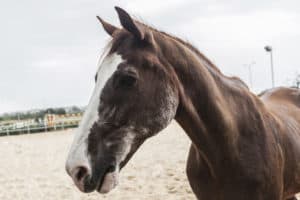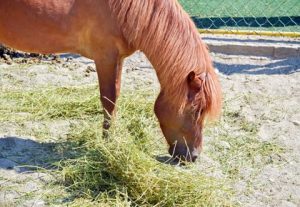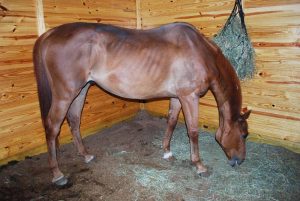
Tips for Getting Senior Horses With Poor Appetites to Eat
If your horse stops eating, consult a vet to rule out medical issues, check feed quality, consider behavioral factors, and use palatable options to stimulate appetite.


If your horse stops eating, consult a vet to rule out medical issues, check feed quality, consider behavioral factors, and use palatable options to stimulate appetite.

Discover which horses can benefit from higher carbohydrate levels in their diets and the feeds that can supply them.

Is your senior horse a picky eater? Be sure he has regular veterinary dental examinations and consider changing his forage or concentrate feed.

Addressing your OTTB’s diet in three phases will help you provide the nutrition he needs to thrive in his new career.

Horses living in areas with sandy soil are at a greater risk of sand colic and impactions. An equine nutritionist offers advice on mitigating this risk.

Soybean meal can be a good source of protein for horses but cannot serve as a horse’s entire feed ration. An equine nutritionist offers alternatives and additions to soybean meal in horses’ diets.

Steaming might be the more effective option for reducing allergens in hay.

Feeding your horse good-quality feed and forage can help him gain weight in a safe way.
Stay on top of the most recent Horse Health news with